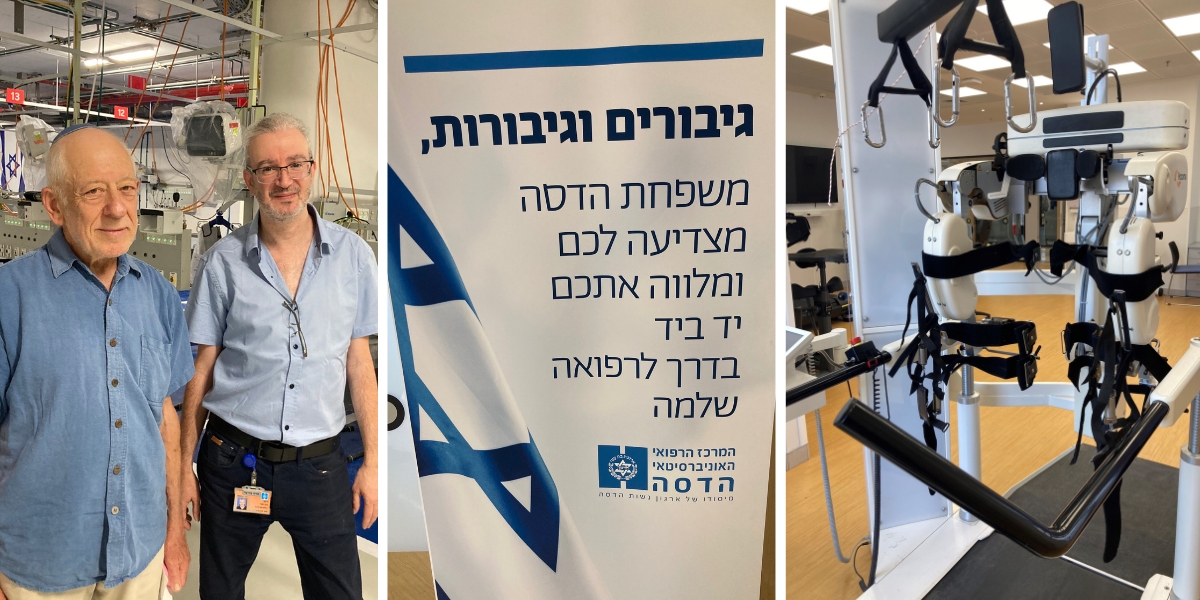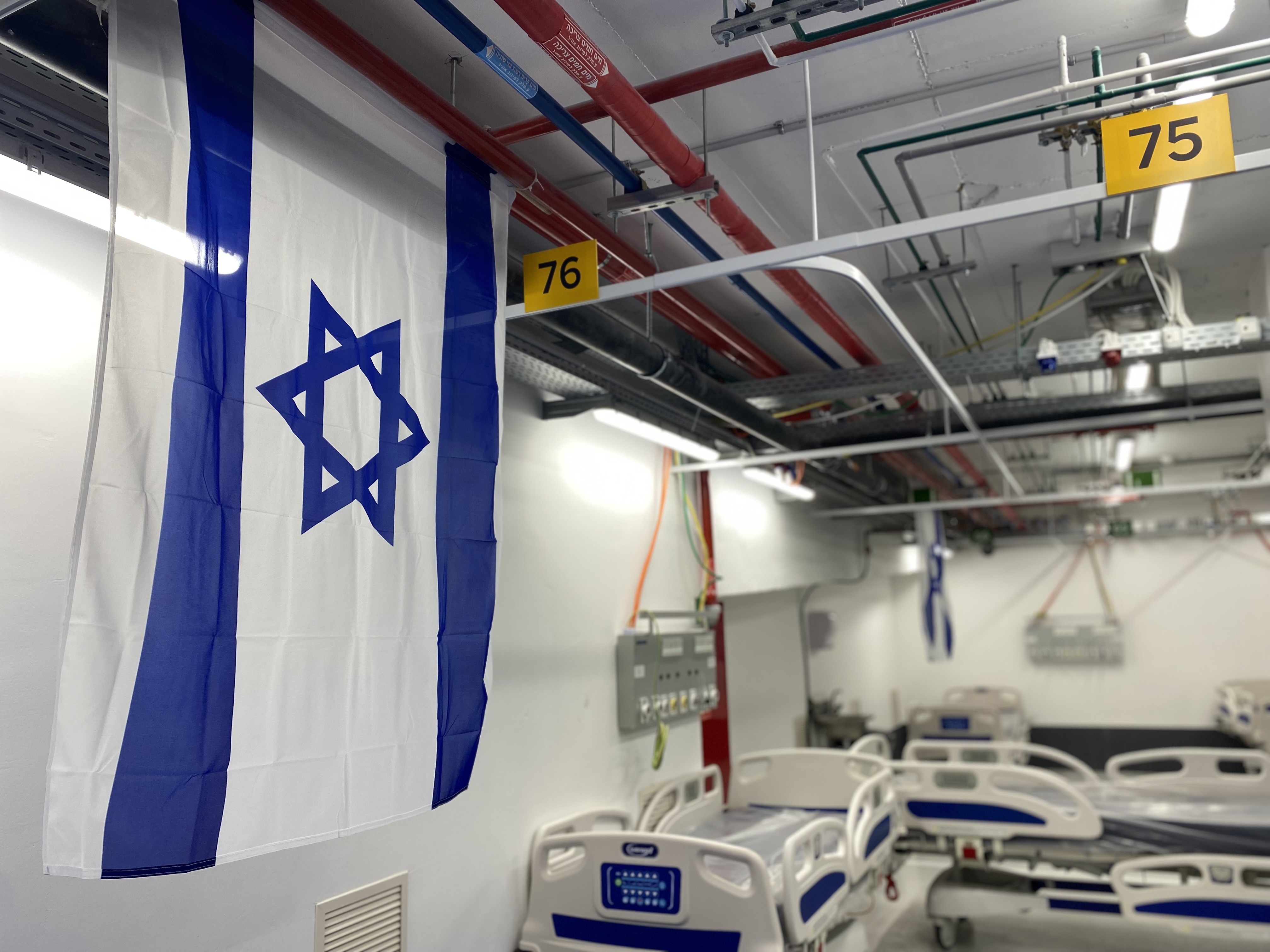
The righteous are called myrtles, likened to a good tree with a pleasant smell…
Rabbi Shmuel Eliezer Edels, the Maharsha
On my way to Hadassah Hospital, I mused on its name. Hadassah is the alternative name of the biblical Queen Esther. As a humble, common noun it means myrtle, a modest shrub with a pleasant scent. To the Persians, Arabs and Jews, myrtle was a symbol of paradise, of purification and rebirth.
A tall thin bloke called Nir and a wider tall man called David, met me at the entrance of the Gandel Rehabilitation Centre of the hospital. We entered by the car park. It looked like any car park. The men opened a great door nearly a metre thick and led me deeper into concrete catacombs. They turned on some lights. I found myself facing underground wards of hospital beds, each equipped with all the fittings of an intensive care department. The great door, the hundreds of beds, Nir told me, have been very recently prepared in frantic haste against the fearful prospect of Hezbollah bombardment.
The Gandel Rehab Centre isn’t finished. It wasn’t supposed to be operational yet. Suddenly there was war, instant improvisation followed, and this place of grim realism was the fruit.
We ascended.

We emerged into a place of brightness. Here was a functioning rehabilitation ward in full swing. Room after room for Occupational Therapy, Physical Therapy, Speech Therapy, Psychological Therapy. Wide gyms equipped with exercise machines adapted to the limbless, the weakened, those ravaged by plain civilian disease and those torn apart by the machines of war. The equipment, its conceptual ingenuity, the human imaginativeness are marvels. But these were not what I marvelled at. Marvellous is the spirit abroad in these wards of happiness and hope.
I looked around and I saw old people, young people, wounded or weakened by illness, with their clinical attendants, all smiling as they chatted and worked. I’ve never seen such a happy hospital. The hospitals I know reduce their patients to subjects. They erode agency. As patients we regress, we’re infantilised. Here at Hadassah I’d entered a level community. Hierarchy of authority must surely exist, but I could not detect it. Everywhere I looked, I saw worker greeting worker greeting doctor greeting therapist greeting mother, father, spouse of the afflicted. And the afflicted showed no bearing of affliction. Here was a team and the patient was a member of the team, looking forward.
The palpable harmony and camaraderie cross all lines. I saw Jewish Israelis and Arab Israelis working together, joking together, conferring earnestly about the care of patients. The patients themselves were Jewish and Arab, some whose dress identified them as strictly religious. I looked and I saw difference. The workers looked and they saw only people. David said, the Director of Emergency Medicine at Hadassah is an Israeli Arab. The Chief of Surgery is an Israeli Arab. Outside, a war is raging. People who work here have loved ones who are being hurt or killed. Yet everyone turns up to work. Everyone works to repair people who are damaged.
I wondered how these people hold within themselves their personal pain or sorrow or rage. I marvelled at their tranquillity. Is it their work, their knowledge of purpose that sustains them? Does the repair of others repair them?
Emerging from the ward into a communal area where people played electronic games and drank coffee, I found myself on a high balcony overlooking semi-arid valleys and gullies and wadis. If I lifted my gaze I could see Jordan. I looked out from this place of repair and allowed myself to hope.
About the author:
Dr Howard Goldenberg, a dedicated Australian physician and esteemed author, has served in diverse medical settings for over four decades. His work, marked by compassion and empathy, extends beyond clinical practice to impactful literary contributions exploring social justice and the human condition. Dr Goldenberg regularly works as a relieving doctor in the outback.